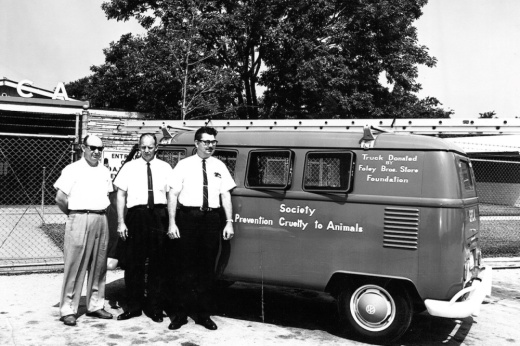Guests are invited to the free event from 11 a.m.-4 p.m. at 7007 Old Katy Road, Houston. It will feature a variety of activities, including food trucks, a beer garden, live music, prizes and giveaways, wildlife demonstrations, a kitten and puppy nursery pop-up, and pets up for adoption.

Members with the Houston nonprofit began their commitment to protecting animals since before the Great Depression, according to Julie Kuenstle, vice president of communications and marketing.

One fact that Kuenstle said the public might not know about the organization is that before they branched off into focusing solely on animals, they also provided social services for women and children in need.
"Back before it was formalized by the federal government, it was during that time when the federal government stepped in and started creating social service programs that we stepped back a little bit and decided that we would dedicate 100% of our time to protecting animal rights," Kuenstle said.

"It runs 24 hours to this day," she said.
For Houstonians who might see an animal hit by a car or animals in need of rescue, Kuenstle said to give the hotline a call at 713-880-4357 (HELP).
Fast forward to the early 2000s, Kuenstle said the organization entered new chapters, including welcoming a wildlife center that serves over 3,000 injured and orphaned wild animals. Today, the Houston SPCA partners with Texas A&M's School of Medicine and serves as a teaching hospital for students. Annually, the organization rescues more than 1,000 animals through various means, including animal cruelty investigations and owner-animal surrenders, she said.
With the last 100 years in the organization's rearview mirror, Kuenstle said there's still so much more to do.
"While we pause to celebrate for a moment for our 100th anniversary, the next 100 years is continuing our mission and that is to just keep responding to our community’s needs and caring for the animals," she said. "That’s what we’ve been doing for the last 100 years and as we start to move into our next 100, that’s exactly what we’re going to continue to do."





